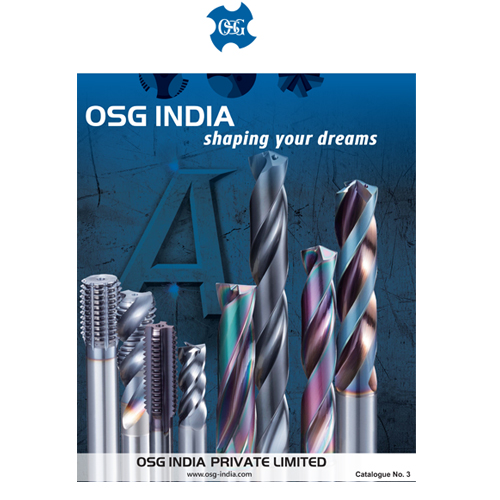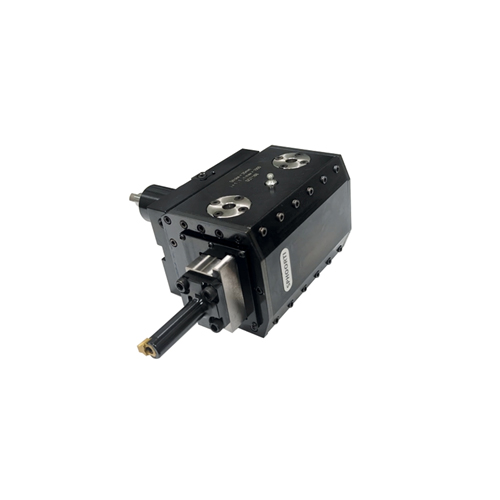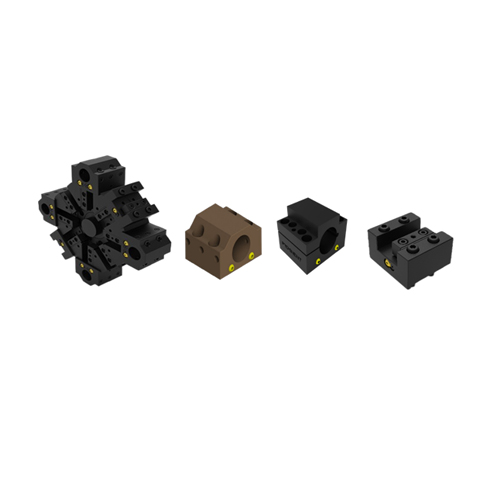Schedule a Call Back
Machine tools industry’s order book position looks positive
 Interviews
Interviews- Nov 03,22

Indian Machine Tool Manufacturers’ Association (IMTMA) has played a leading role in the development of the machine tool industry, which is the backbone for industrial growth in India. This national cause has been the guiding force behind IMTMA and its membership. IMTMA is committed to support its members to increase competitiveness, enhance efficiency, improve productivity, and ensure growth. It does so with the aim to assist the members to become cost-effective, technology-driven, and ever responsive to customers’ changing needs. In this interview with Rakesh Rao, Jibak Dasgupta, Director General & CEO, IMTMA, elaborates on the future of Indian machine tools industry and sectors key for driving the demand.
As the new Director General & CEO of IMTMA, what are your immediate priorities?
It is a privilege for me to be associated with IMTMA, an industry association with a long history going back to pre-independence era. Well, from an industry interest perspective, my primary focus will be on data driven analysis and decision making, maintaining closer relations with MSME clusters in Pune and Delhi-NCR. As Indian machine tool industry has significant presence of MSMEs, bringing them to the next level will pay rich dividends. Further, I would also work towards empowering the regional councils in south, west and north regions, and extend support towards technology development and innovations to build products indigenously which could find global acceptance for exports. As these developments happen, machine tool industry will become an innovation driven industry in terms of development of products, equipments and processes.
How was the performance of the Indian machine tools industry in FY22? What are your expectations for FY23?
Indian machine tool production during FY 2021-2022 is estimated to have reached around Rs 9,307 crore and consumption is estimated to have reached around Rs 15,791 crore. Production is estimated to have increased by around 40 per cent year-on-year in 2021-22 and consumption is estimated to have increased by around 30 per cent year-on-year in 2021-22.
I am pleased to mention that the Indian machine tool industry is ranked 8th in consumption and 11th in production, globally, as per Gardner Intelligence’s World Machine Tool Survey 2021. The order book position, an indicator of growing consumption, looks positive for the forthcoming financial year 2022-23 and with the green shoots being evidently visible, the performance is expected to improve in the coming quarters.
What are the key challenges for the Indian machine tools industry at present?
Primarily, the machine tool industry needs to overcome bottlenecks pertaining to increase in cost of raw materials impacting margins, rise in fuel prices affecting logistics, and challenges in supply chain. The geo-political situation in Europe is impacting manufacturing as prolonged war and sanctions will impact logistics, banking and business. Also, the availability and deployment of trained and skilled manpower in the era of digitalisation is a big challenge confronting the industry.
What kind of technological changes are you witnessing in the machine tools industry?
Some of the emerging trends include:
SMEs contribute majorly to the growth of machine tools industry and manufacturing sector in India. How geared up are SMEs to adapt to the technological changes that are taking place in the industry?
Software related design, simulation, modelling, inventory management; customer relation project management, etc. are being already adopted by SMEs. Hardware related developments which need investments are happening in phases since many of the industries are stuck with legacy machines.
The Indian machine tools industry still depends on imports to meet its requirements. How do you think we can reduce our dependence on imports?
Indian machine tool industry imports high-end technology and large-size machines substantially. To narrow this gap, we need to build inherent capabilities through intensive R&D and innovation. Fruitful collaboration between industry cohorts and academia when put to good use can nurture technology development resulting in industries enhancing their capacities to manufacture high-tech products, bring product diversification and help localisation of imports.
Do you think demand from auto/auto components is back to boom? Will growing demand for electric vehicles pose a challenge to the machine tools industry's growth? Besides auto, which are the other sectors key for driving the demand for machine tools?
We are witnessing an increase in vehicle production and supplies to dealers along with good demand from end consumers. Indian machine tool industry is strong when auto industry is strong and the recent surge in auto sales bodes well for machine tool industry as it gears up to organise IMTEX. The onset of electric vehicles will pose some challenges to auto component industry and the machine tool industry, but internal combustion engine vehicles are still going strong with a good market share. We don’t see a threat in the near term. Interestingly, metal forming industry including our member companies have got good orders from the electric vehicle industry. Machine tool industry is already diversifying into sunrise sectors such as toys, furniture/woodworking, agriculture machinery, construction equipment, earthmoving, electronics, medical devices, and railways, aerospace and defence, etc. where government schemes are beneficial. IMTMA has formed special interest task forces whose members visited these sectors to obtain a deeper understanding of the opportunities for machine tools and the technologies to be adopted to serve them.
What are the highlights of the upcoming IMTEX 2023 exhibition?
Some of the highlights of IMTEX 2023 are:
How digital manufacturing will play a transformational role in overall manufacturing?
Digital manufacturing will have a transforming role to play especially with India aiming to increase manufacturing sector’s contribution to GDP from around 15% to around 25% in the coming years. Industries in developed countries have already incorporated digital and automation concepts for overcoming labour issues and developing competency. Industries in India are also doing so in a calibrated manner. Industry 4.0 product and solution providers need to focus on easily deployable, packaged products – building blocks for implementation by MSMEs, preferably of open source and adoptable to legacy systems. Indian machine tool industry has significant presence of MSMEs. These MSMEs need to be strengthened through R&D, investments as well as favourable policy decisions. Adoption of technologies by MSMEs will ensure growth although some handholding would be required.
Related Stories

IMTMA’s MTX Connect Jamshedpur to showcase latest machine tool technologies
IMTMA and CII will host the third edition of MTX Connect in Jamshedpur on 3–4 November 2025, offering machine tool makers a platform to connect with industries across eastern India.
Read moreMohini Kelkar is the new IMTMA President
The 79th Annual General Meeting (AGM) of the Indian Machine Tool Manufacturers’ Association (IMTMA) took place on 10 September 2025 at Bangalore International Exhibition Centre (BIEC), Bengaluru.
Read more
Mohini Kelkar elected as IMTMA President, Vikram Salunke is the new VP
Indian Machine Tool Manufacturers’ Association (IMTMA) elects new leadership team for 2025–2026 term.
Read moreRelated Products

Precision Cutting Tools1
S S Trading Corporation offers a wide range of precision
cutting tools.

Slotting Head Unit for All Cnc Turn Mill Centers
Sphoorti Machine Tools Pvt Ltd offers a wide range of
slotting head unit for all CNC turn mill centers.

Slotted Tool Disc and Tool Holders
Prominent Machine Tools offers a wide range of slotted tool disc and tool holders.
















